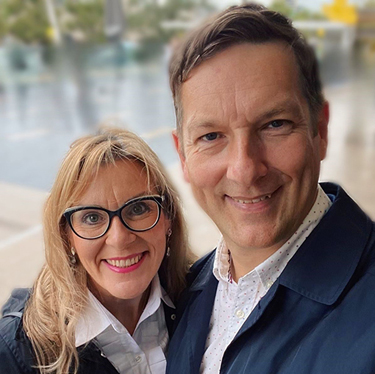A Couple's Plan To Revamp Poland's Clinical Trial System

By Dan Schell, Chief Editor, Clinical Leader

“You won’t be able to do this.”
That was the general consensus amongst naysayers when they first heard the research study idea Hanna Preus MBA, FRQA, MICR was suggesting for her doctoral dissertation. Simply put, she wanted to investigate the status of the clinical trials industry in Poland and identify gaps that could be improved upon. It was daunting task, even for someone like Preus who had spent her entire career working in clinical trials for companies such as ICON (PRA Health Sciences), Parexel, Opiant Pharma, and Astellas, where she is currently global director, clinical QA/operational excellence & regulatory compliance. Undeterred, she forged ahead with the project. Her husband, Artur, whose expertise is in financial crime, decided to join her in this pursuit, which involved about six months researching and collecting 3,208 questionnaires from respondents in the following groups:
- Patients (both trial participants and those who have not been in a trial)
- Site/hospital staff (e.g., PIs, nurses, study coordinators)
- Pharma representatives
- CRO representatives
- Representatives from Polish national institutions and private sector companies related to clinical trials

GLARING DISCREPANCIES
“As we began to compile the data, we saw some glaring discrepancies amongst the groups,” Artur explains. “For example, 67% of patients who had never been in a trial answered that they do know what clinical trials are. But less than 24% of site staff believe those same patients are aware of clinical trials. We found a similar discrepancy when looking at the concept of patient-centricity. Namely, sponsors and CROs overestimated how satisfied patients were with their clinical trial experience.”
Some other examples of the research’s findings include:
Access to information about clinical trials:
According to approximately 70% of respondents in all the groups, there is still a lot of work to be done when it comes to providing Polish citizens with easy access to information about clinical trial opportunities.
Understanding the informed consent process:
In the U.S., the FDA has very specific guidelines and expectations regarding informed consent. Specifically, the agency says, “FDA believes that obtaining a research participant's verbal or written informed consent is only part of the process.” In other words, site personnel need to make sure patients fully understand the risks and expectations of participation in a trial. Unfortunately, the Preus’ research didn’t show much alignment between how patients and site personnel view the ICF. Only 67% of trial participants said they read the ICF before deciding to participate in a clinical trial, and 25% stated they don’t even remember this important document. Conversely, the majority (81% of doctors/PIs, 64% of nurses, and 64% of study coordinators) of site personnel believe trial participants understand the ICF before they sign it.
Clinical trial participant reimbursement:
Only 14% of trial participants stated they received reimbursement for travel to a clinical research site. The following percentages pertain to how many in each group said that trial participants were informed about the possibility of receiving payment for travel to sites:
- 84% pharma representatives
- 69% CRO representatives
- 57% doctors/PIs
- 26% nurses
- 19% study coordinators
MAKING AN IMPACT
After the Preus’ completed their 600-page Ph.D. paper, they decided to condense it to a 400-page book called Clinical Trials - Challenges And Development Prospects that came out in 2022. The changes they recommended focused on four areas:
- Awareness and knowledge about clinical trials
- Ethics and regulatory requirements in clinical trials
- Organizational elements in clinical trials
- Finance aspects in clinical trials
“We not only outlined how each of the stakeholders should implement these changes, but we also identified the expected outcomes of those changes,” Hanna says. “We also defined our proposed KPIs and explained why these should be measured and at what frequency.”
According to Artur, one of their recommendations was to establish a centrally located authority in Poland that would work on regulations and help improve social awareness surrounding what clinical trials are and why it's worth it participate in them. In the meantime, the MRA (Medical Research Agency) was established. According to the agency’s website, the MRA “is a state agency responsible for development of scientific research in the field of medical and health sciences. MRA is an entity whose purpose is to build an innovative healthcare system.” Whether or not that’s a coincidence, the Preus’ did find out that someone at the agency has their book “on their desk, which is different than just on a shelf,” Hanna says with a smile.
Aside from the impact Hanna hopes their research will have on her country’s clinical trial system, she acknowledges there was another, more personal, outcome. “This project was all-consuming, and we treated it very seriously. Each week we would have a meeting in a nearby pub to just get out of the house and review everything we were doing and what our plan should be,” she recalls. “The experience helped us better understand each other — it was a true collaboration full of tears, smiles, quiet moments and love.”
So, with such a giant accomplishment behind them, there’s probably no plan to write another book or a second edition … right?
“Oh, no, we do plan on doing an updated second edition that talks about the latest developments and how any of our recommendations got implemented,” Artur concludes. But he says when that will happen is still being discussed.
